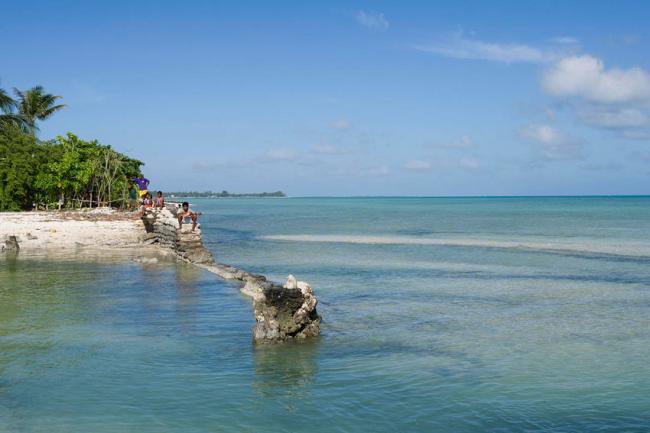07 Mar 2015, 02:03 pm Print

The President of Kiribati and the Prime Minister of Tuvalu were joined by Deputy UN High Commissioner for Human Rights Flavia Pansieri, who opened the discussion, telling the Geneva-based Council that human-induced climate change is not only an assault on the world’s shared ecosystem but it also undercuts “the rights to health, to food, to water and sanitation, to adequate housing and, for the people of small island states and coastal communities, even the right to self-determination.”
The spokesperson for the Office of the UN High Commissioner for Human Rights (OHCHR), Rupert Colville, briefed the press on the discussions, saying that continued sea level rise at their current rate, could result in low-lying Pacific Island States, including Kiribati and Tuvalu being submerged within decades.
According to a Government minister from Kiribati who briefed the Council in January, preparations are underway for a time when climate change “refugees” might exist. The Government of Kiribati has been buying land offshore and providing people with the skills to “migrate with dignity” when their islands were no longer habitable, Colville said.
Survival is one thing but if the islands of Kiribati and Tuvalu do disappear, the spokesperson said, gone with them will be all the trappings of a modern state, Government buildings, courts, hospitals and schools. That will undermine those States’ peoples’ right to self-determination.
Their leaders will have to find ways of reconstituting their States elsewhere, or persuade another government to provide their citizens with passports, welfare and protection. If they can’t do this, these “climate change refugees” will become stateless.
“We are calling for human rights standards to be put front and centre of discussions on mitigating the negative impacts of climate change,” said Colville.
Photo: UN Photo/Eskinder Debebe
- Why are scientists warning about surging glaciers? All details inside
- Mass coral bleaching to hit Great Barrier Reef most years, study reveals
- Global water bankruptcy shock: Why the planet’s most precious resource Is collapsing
- Would you pay $1 million to stay on the moon? This company thinks so
- A historic UN deal is about to transform how the world protects its oceans





-1763561110.jpg)
